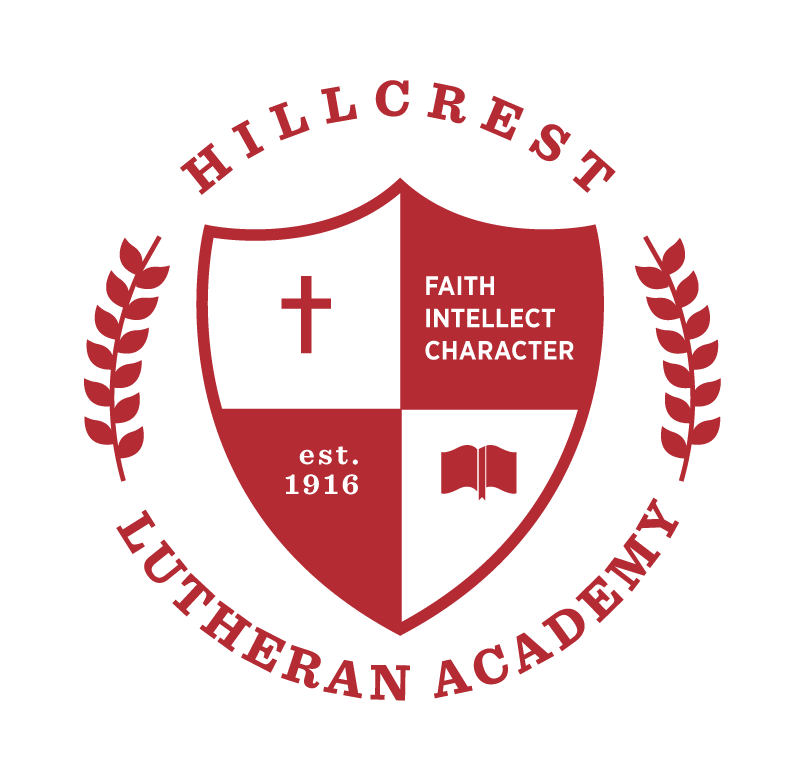Fifth Grade Presentations Highlight Practiced Knowledge and Exercised Faith
In many schools today, a student’s knowledge is often measured by tests, quizzes, and final exam scores. While these assessments can track proficiency, they don’t capture the fullness of a student’s growth, especially the growth that happens when they actively share their knowledge with others. This week, the fifth-grade class was the latest to present this “learning out loud” approach, an integral part of our school’s culture, and reflects a deeper, classical model of education that prepares students for robust engagement with the world and with God.
Classical education encompasses cultivating wisdom and virtue beyond acquiring facts. While many schools following a classical model focus on grammar, logic, and rhetoric, Hillcrest adds a unique dimension: students are guided to see how all truth ultimately points to God. They study how God has designed the world in such a way that it reveals His nature. Students examine mathematics, art, history, and science as windows into deeper truths about the Creator. Hillcrest also teaches that there is a specific way to know God personally: through His Word or special revelation. Students at Hillcrest learn that studying the world gains true context when paired with studying God’s Word. This balanced approach, examining the world God created and exploring the Scriptures He gave us, shapes both the mind and the heart.
When students see all knowledge as part of God’s revelation, it profoundly impacts how they form their identity. They understand themselves first as children of God, learning about their purpose and dignity from His design. However, identity formation at Hillcrest isn’t passive or solitary; it’s practiced in the community. Sharing knowledge in a public setting helps students affirm what they believe and share their convictions, building confidence and sharpening communication skills.
This communal exercise does more than reinforce student learning. It prepares them to live out their identity in the real world. By sharing what they’re learning with teachers, parents, peers, and community members, students demonstrate what they know and who they are. They become equipped to apply their knowledge practically and convey larger, deeper truths, ultimately pointing people to the God who made them.
This week, the fifth-grade class’s Friday presentation highlighted Hillcrest’s unique education philosophy. Students were invited to present their learning before teachers, staff, parents, and the broader school community. These presentations showcased more than academic achievement. They highlighted God’s handiwork, exploring how God’s character echoes the creativity and order found in God’s design.
For these fifth graders, the presentations were more than class projects. These presentations, given to lower school students, teachers, and parents, were opportunities to exercise the discipline of sharing, the discipline of “learning out loud.” In doing so, the students celebrated the way God is opening their hearts and minds to know Him more deeply. They practiced articulating what they have discovered, inviting the community to marvel alongside them at the grand design of creation and the hope we find in Scripture.
Ultimately, this approach to education at Hillcrest Academy is rooted in the conviction that knowing the world God made should guide us to know God Himself. In this model, identity is forged by personal understanding and active engagement, speaking truth, demonstrating competence, and inviting others to see God active and working in all things. By pairing general revelation with Scripture, students develop holistic knowledge that shapes character, sharpens faith, and fosters a genuine desire to serve and guide others toward the hope found in Christ.
Hillcrest Academy’s commitment to opening the classroom to the broader community stands out in a world often preoccupied with test scores and academic benchmarks. By championing the value of sharing knowledge, Hillcrest equips students with a deeper identity and a higher purpose: to reveal the goodness of God through what they learn and how they live.

